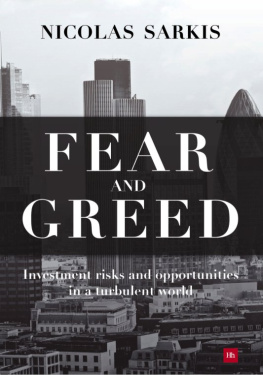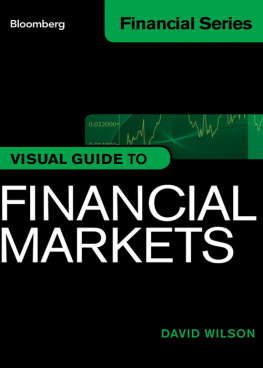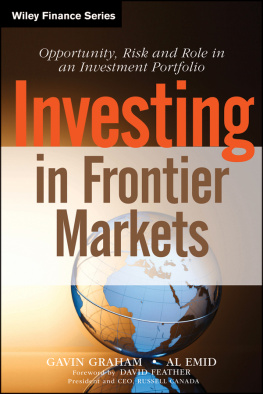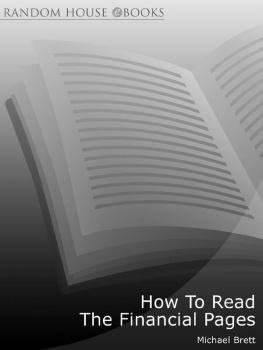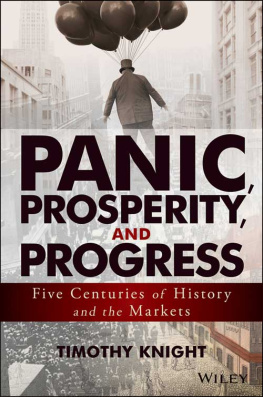In the course of writing this book, I have been fortunate enough to have had access to some of the finest economic and financial databases in existence. These collections of market data are the result of many years of painstaking research by their creators. I want to express my gratitude to them all publicly for their generosity in making their invaluable findings available to me.
In no particular order, I would like to thank Professor Carmen M. Reinhart of the Peterson Institute for International Economics for her permission to cite figures from the database of government indebtedness that she assembled with Professor Kenneth S. Rogoff of Harvard University.
Likewise, I am thankful to Professor Robert S. Shiller of Yale University for letting me quote from his figures relating to US stock returns, inflation and interest rates going back to 1871.
My task was also made considerably easier by perusing the superb compendium of global asset price performance compiled by Professor Elroy Dimson of London Business School, and his colleagues Paul Marsh and Mike Staunton, and which is published annually as the Credit Suisse Global Investment Returns Yearbook and Sourcebook.
My thanks also go to Professor David Le Bris of Universit Paris-Sorbonne, France, for supplying me with the superb recreation of Frances CAC 40 index going back to 1854 that he constructed with Professor Pierre-Cyrille Hautcoeur of the Paris School of Economics.
I am also indebted to Chris Chantrill for letting me include figures derived from his website (www.ukpublicspending.co.uk).
About the Author
Nicolas Sarkis started his career in 1993 as an Associate with Goldman Sachs Institutional Equities division in New York. He relocated to London in 1994. He became a Vice President in 1997, at the age of 26. He spent more than 12 years with Goldman Sachs where he was successively Head of the US Shares institutional sales and trading group in Europe and then a Vice President in the Private Wealth Management (PWM) department where he worked for about 9 years.
While in the US Shares group, Sarkis and his team ranked number one in the McLagan Survey of Institutional Investors three years in a row, providing equity research coverage to several of the largest European institutional investors and successfully placing many high profile Initial Public Offerings of the 1990s Ralph Lauren, Steinway Pianos, Associates First Capital, Real Network, China Telecom as well as secondary block trades e.g. the sale of BP stake by the Kuwait Investment Office.
While in PWM, Sarkis managed investment portfolios for some of Europes wealthiest families and largest foundations. When he left Goldman Sachs at the end of 2005, Sarkis was running one of Goldmans largest PWM teams in Europe.
Sarkis set up AlphaOne Partners at the beginning of 2006 as he felt he could put together a more pertinent service offering for very large investors from the vantage point of a buy-side institutional investment platform. Such investors are typically those whose assets are too large to be managed by a bank.
AlphaOnes model revolves around three simple principles:
- conflict-of-interest free investment advice AlphaOne does not have any in-house products and investors are not shareholders
- improved investment methodology by focusing on a tried and tested investment process, similar to that used by the most successful university endowments globally
- cutting transaction and management fees whenever possible, thanks to AlphaOnes institutional investor status
In May 2008, the Wall Street Journal Europe ranked AlphaOne amongst Europes top wealth advisers; it was the only firm in the top 5 of this annual ranking which was not affiliated with a banking institution. In January 2009, AlphaOne ranked at the top of Wall Street Journals Wealth Bulletin investment management league table. In December 20009, Spears, one of the UKs leading wealth management magazines, chose AlphaOne to be the recipient of its annual asset management award.
Introduction
The global financial crisis that erupted in 2007 has dramatically transformed the world of investment. Many trillions of dollars of wealth have been destroyed, with few types of financial asset immune from the carnage. The ultimate owners of much of this lost wealth the general public now hold the investment industry in lower esteem than they ever have before, and understandably so. A great deal of what we investors thought we knew about markets and investment also lies in tatters.
I have witnessed the markets extreme fear and greed of recent years in about the most direct way possible. Throughout the period, I have worked as an investment manager, advising both individuals and institutions what to do with billions of dollars of their funds. Having worked for Goldman Sachs for a dozen years, I established my own investment firm AlphaOne Partners in early 2006, a mere eighteen months before the crisis struck. To say that this business underwent a baptism of fire is clearly an understatement.
It is one of my proudest achievements that I have helped AlphaOnes investors not only to protect but also to grow their wealth amidst these torrid conditions. Without wishing to sound immodest, I believe that we have been able to do this because we had well-formed ideas about the sort of opportunities that the crisis was likely to create and were thus well prepared for them when they arose. These included successful investments in stocks, commodities, real estate and private equity. Being prepared is essential, as the window of opportunity in these instances is often brief.
It was in the spirit of preparing for the next set of opportunities that I decided to write this book. As of late spring 2012, the financial crisis is still very much with us. Harsh but necessary austerity measures are biting savagely across much of Europe, casting people out of work and crimping living standards. There is a genuine risk that the single European currency will not survive in its current form, and that some developed world countries will end up defaulting on their debts. Investors need to have a plan in the event of one or both of these disastrous scenarios.

